In this new regular feature, we meet members of the faculty and learn what inspires their teaching and commitment to students at UMF, which was recognized by U.S. News and World Report for Best Undergraduate Teaching among Top Public Colleges in 2019.
In this inaugural installment, we see and hear from Clarissa Thompson, Associate Professor of Secondary Education and English Education, Coordinator of UMF’s Early College program, and the adviser of record for all first-year students pursuing degrees in Secondary Education.
Words: Clarissa Thompson / Photos: Marc Glass
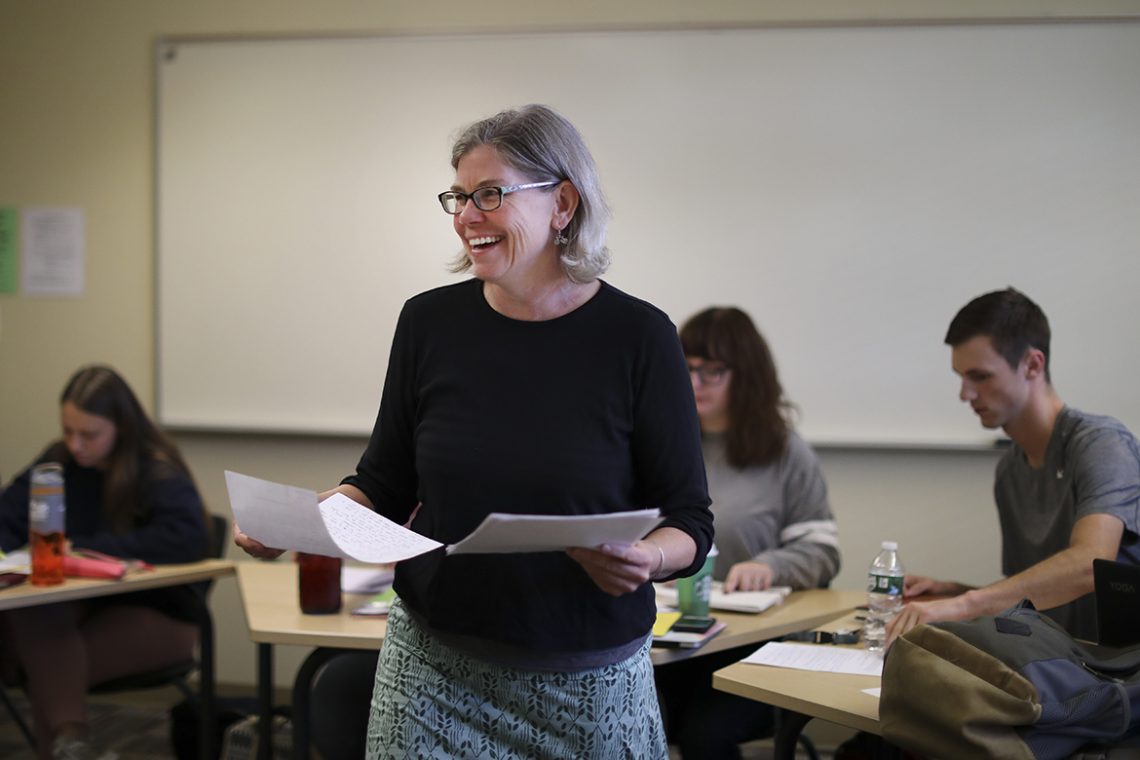
Associate Professor of Secondary Education Clarissa Thompson hands back papers to her students in EDU 307/308, Teaching English Language Learners and Texts and Teaching.
You have taught at a large flagship public university and earned your undergraduate degree at a small private liberal-arts college. What about teaching at UMF appeals to you, professionally and personally?
Having worked in these different settings, I have come to realize that a small college with a strong sense of community is where I want to be, and where I see great work being done, with all kinds of students, from all kinds of backgrounds. It took working at a large flagship public university to bring this home to me. I was lucky in getting a chance to “live in” both worlds — as a professor, and also to have had my own small college liberal arts background to consider. As an undergraduate student, I thought small classes and access to faculty were important. Now, as a faculty member, I get to see the benefits from a different angle.
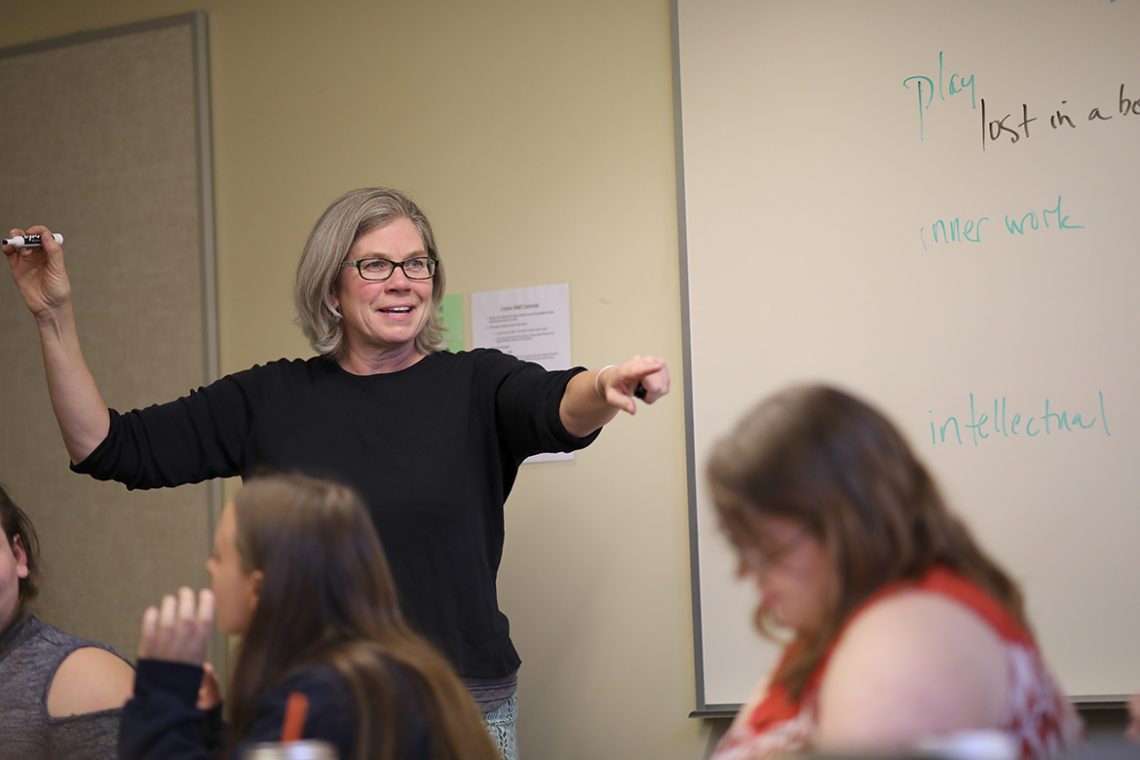
At UMF, I have come to really love working with first-generation students, something that was sort of a new experience for me when I came here. Our commitment to helping all students succeed at college, and the resources we bring to this, make me so proud to work here and to do this job. I also love seeing my students go on to some form of teaching or education and other careers that are a good fit. Between social media that connects us, loyalty to UMF, and Maine being a small state, I get to see my students “grow up” and become people who are participating in the world in various ways, drawing on their UMF educations and experiences in various ways. That is an incredibly rewarding experience.
There is so much that I love about teaching and working here, and it changes all the time. At the risk of being cliché and saying “it’s the students,” they really are the main focus of what I do at UMF and what I enjoy about teaching and advising. Having multilayered relationships and opportunities to connect with my students and help guide their future plans is very satisfying.
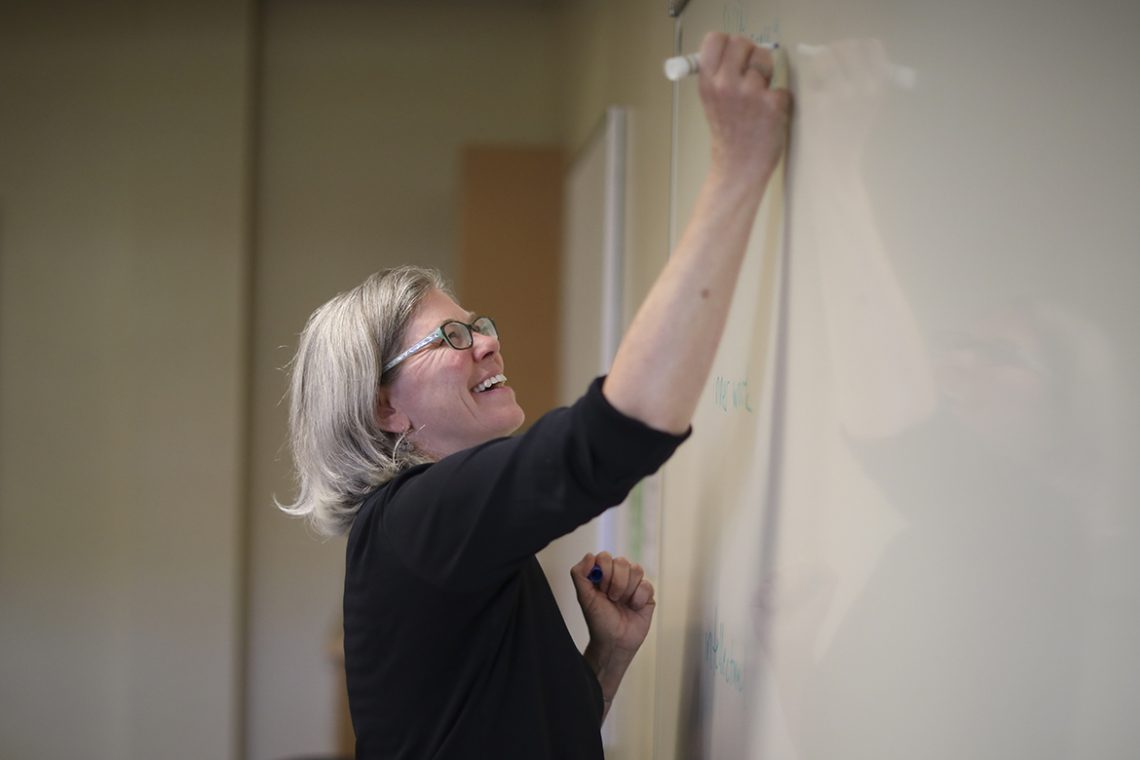
Also rewarding are just the many different things I have been able to do here. When I arrived at UMF, I knew I would advise students, but did not know how much I would end up enjoying that, and how big a part of my job it would end up becoming. At the moment, I am the adviser for all of the first-years in Secondary Education, and that is something I have come to love, mostly because I know how important it is to help these new students successfully make the transition to college. I feel I am able to make a real difference with many of them.
You are directly influencing and shaping future generations of middle- and high school teachers of language arts and literature. What values and principles about teaching English, reading, and literature do you think are most important to impart to UMF students as they learn methodology and pedagogy?
That there are many ways to do it — many ways to teach English, there are so many different types of texts, literary and otherwise, and you can find value in almost any work, and find something to teach within it. So, the room for creativity and options for going in different directions are endless. Of course, this is what makes teaching one of the hardest, but also most rewarding, types of work. So many decisions, so much complexity.
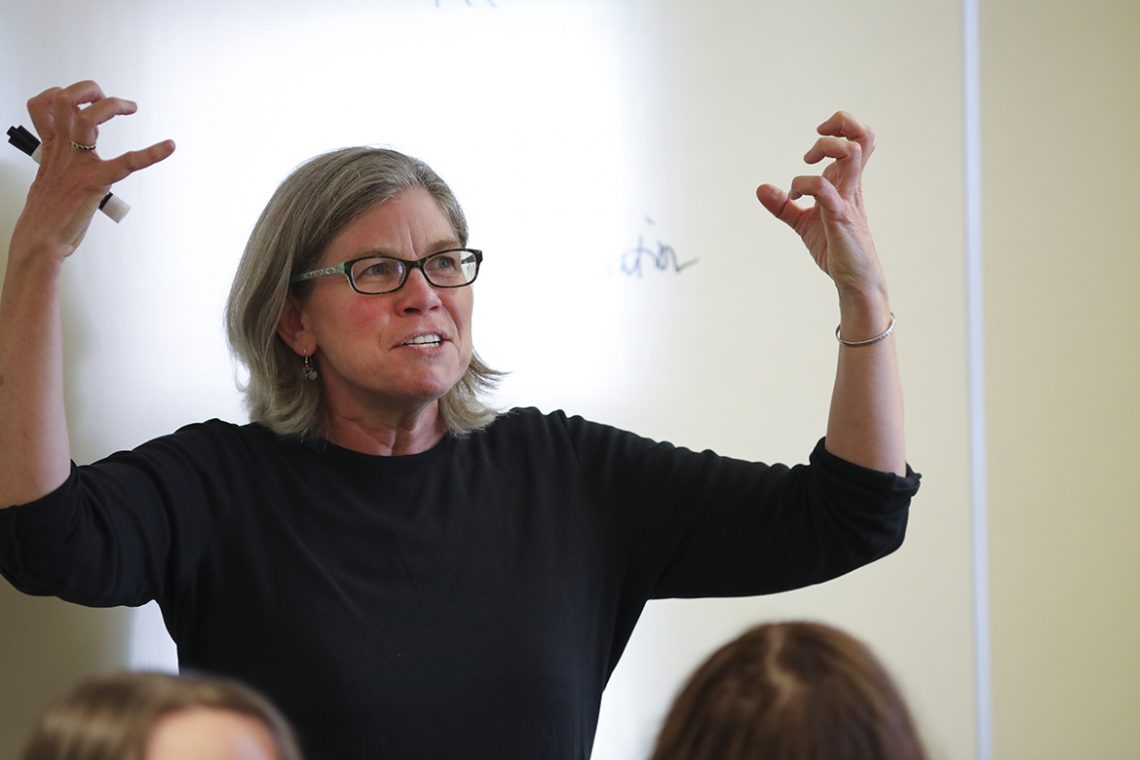
I also think it is important to remember that reading, and working with books (or other forms of text) is for everyone. Not everyone will like every text they encounter in a classroom; though I think English teachers — all teachers, really — have an obligation to think about ways they can use a variety of different texts in the classroom, as well as give students opportunities for choice, when possible. In this way, all kids are more likely to enjoy and appreciate at least some of the texts they work with during school.
It’s said that literature in all its forms captures the human condition and the predicaments and sentiments that people experience. What does the study of poetry and narratives do for young people? How might it be important to the construction of their own narrative?
I have not always been comfortable with poetry, and even now I do not consider myself an expert. However, I do use a lot of poetry when I am teaching my English Methods course. When the semester starts, I read poems aloud at the beginning of class every day. I then ask students to read poems aloud. Hearing lots of poetry helps students feel more comfortable with poems in general. In this context, our job is to gain exposure to different types of poems and by extension different ways language is being used to talk about things, experiences, feelings.
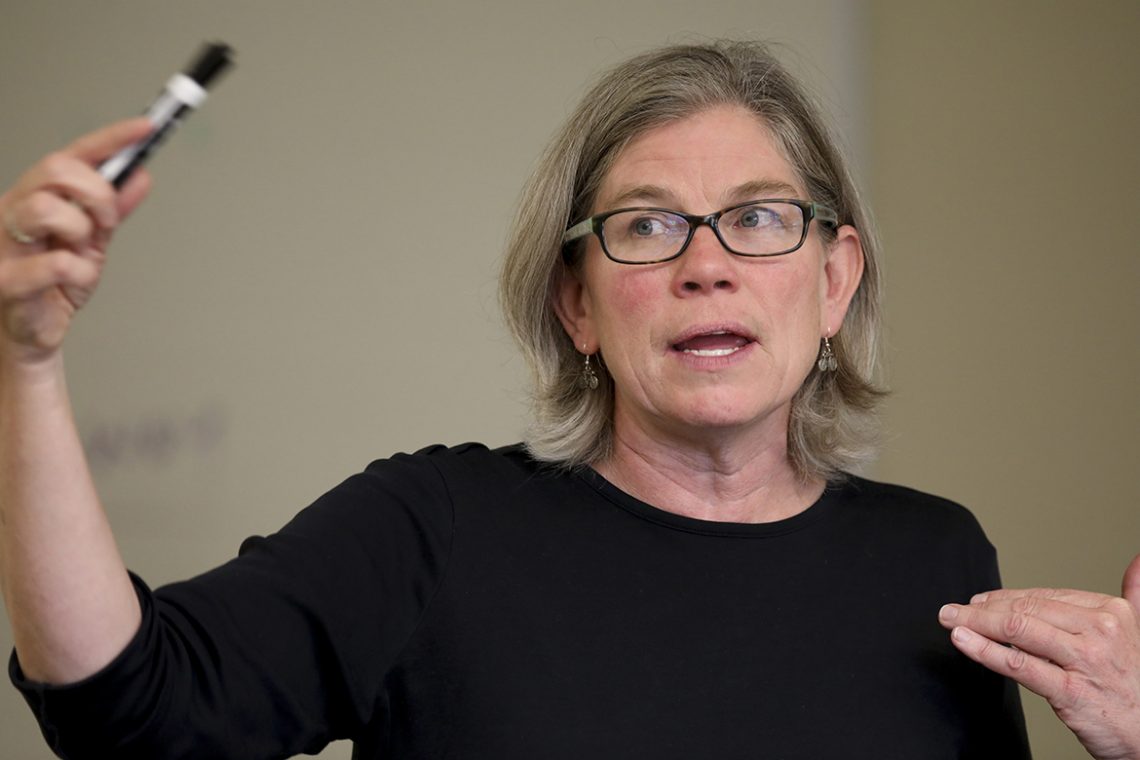
One of the treats for me is seeing what poems my students choose to read aloud. They usually pick poets, poems, or topics that I never would have thought of. In a recent class, a student read a poem about the kitchen table and the central role it can play in a home. I loved it.
I hope that my modeling various approaches with poetry helps students see that they can construct their own relationship with different texts in different ways, that they do not have to be experts, but rather show up with texts and share those with their students, and work together with them to create connected relationships between them, the texts, and the students in their classes.
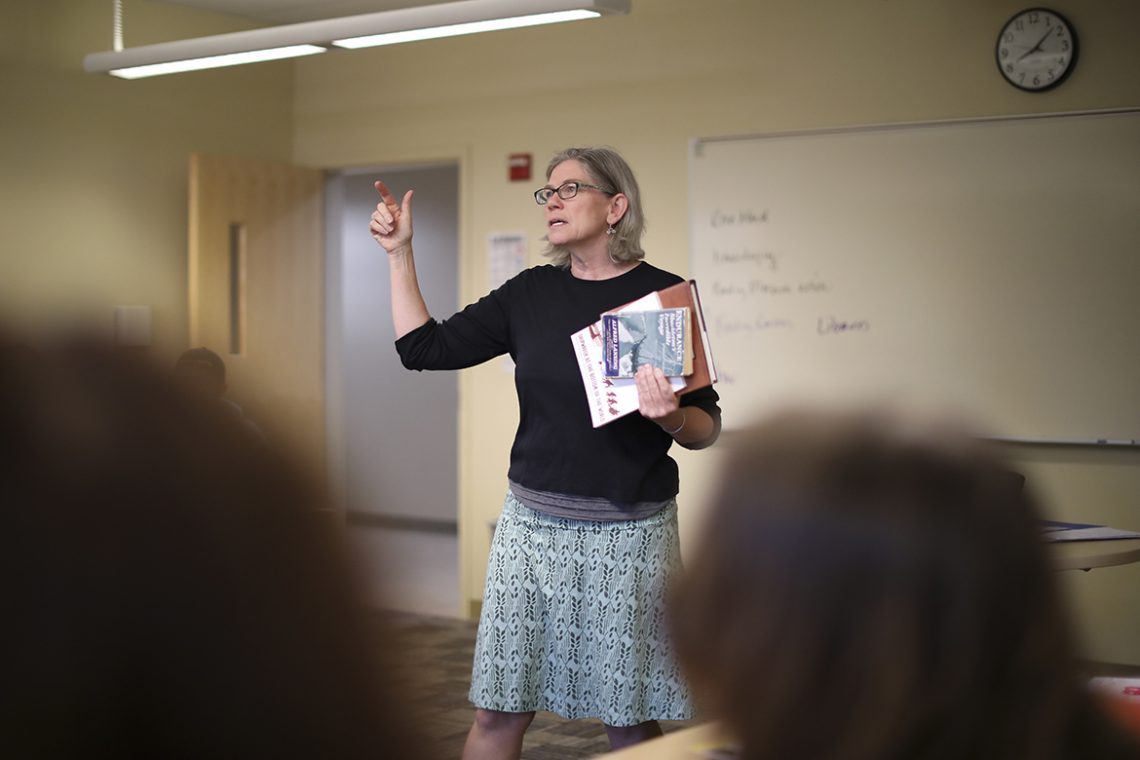
What advice would you give to people who find themselves in the role of encouraging children to read?
It is never too late to become a reader. Having people who read as models is important. There is a “just right text” for everyone. Keep reading, abandon books when you need to, but try again. Ask others for recommendations. Reading aloud can be invaluable in engaging less enthusiastic readers in the act of reading. Just like anything. it gets easier the more you do it.
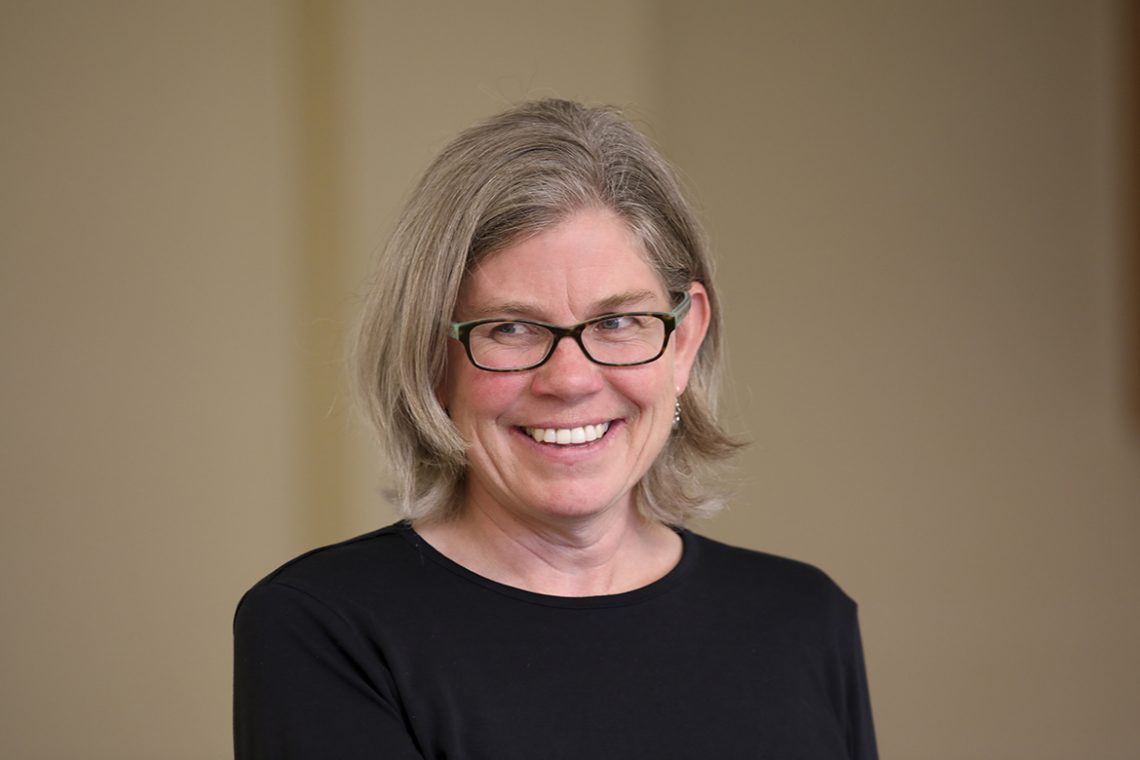
Prior to becoming a college professor, Clarissa Thompson taught high school English for 10 years. At UMF, she teaches courses in UMF’s Secondary Education program and serves as the adviser of record for all first-year students seeking degrees and teacher certification in Secondary Education. Her courses focus on preparing prospective teachers for careers in schools and classrooms and include Teaching English Language Learners/Texts and Teaching, English Methods, Young Adult Literature, Experiences of Schooling/Diversity, and Social Justice Education. Her professional interests focus on transitions, including students’ transition from high school to college and their transition from teacher preparation experience into the first years of teaching. She loves reading and is committed to getting others engaged in reading, too.

